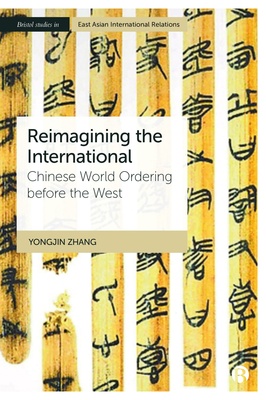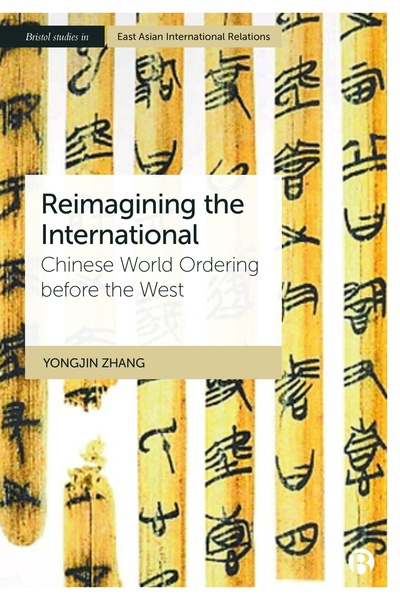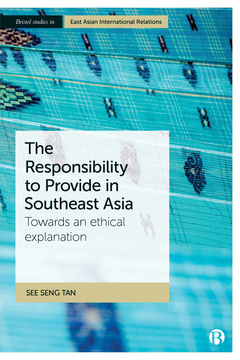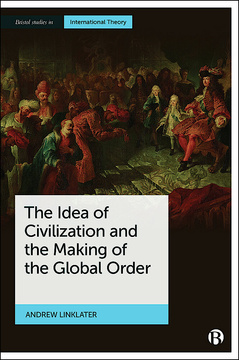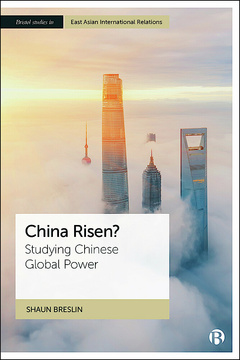Published
7 Jan 2025Page count
224 pagesBrowse the series
Bristol Studies in East Asian International RelationsISBN
978-1529237344Dimensions
234 x 156 mmImprint
Bristol University PressPublished
7 Jan 2025Page count
224 pagesBrowse the series
Bristol Studies in East Asian International RelationsISBN
978-1529237368Dimensions
234 x 156 mmImprint
Bristol University PressPublished
7 Jan 2025Page count
224 pagesBrowse the series
Bristol Studies in East Asian International RelationsISBN
978-1529237368Dimensions
234 x 156 mmImprint
Bristol University PressA rich and enlightening study of Chinese international relations, this book shows how engaging China’s history can contribute to our search for global foundations of international thought. It examines international thought in ancient China, Chinese international relations in deep world history, and the evolution of contemporary Chinese academic IR as intellectual history.
Offering a distinctive English School perspective, this volume is a call to put studies of Chinese international relations in their proper historical context, arguing that such an approach leads to a better understanding of Chinese ideas and statecraft and contributes to a fruitful pursuit of IR knowledge production in the construction of global IR.
“The best book on China in International Relations because in rethinking its long history in a non-Eurocentric global context, it also tells us new things about the international system today.” John M. Hobson, University of Sheffield
Yongjin Zhang is Professor of International Politics at the University of Bristol.
Introduction
Part 1: International Thought in Ancient China
1. The Idea of Order in Ancient Chinese Political Thought
2. World Ordering in Confucian Moralpolitik
Part 2: Chinese World Ordering before the West
3. System, Empire, and State in Chinese World Ordering
4. The Tribute System as International Society
5. Europeans in Pax Sinica, 1513–1793
6. China in European Worlding, 1500–1800
Part 3: Chinese World Ordering as Intellectual History
7. Chinese World Ordering as History of Ideas
8. The ‘International Turn’ in Chinese Intellectual History
Epilogue: Reimagining the International







